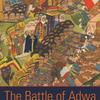Watson, Rachel Morris. “WRITING REVENANTS: Corporealizing Memory in the Francophone Theater of Wajdi Mouawad”. Working Paper. Web. Full TextAbstract
The corporeality of language is primordial in theater: the intersection of body and text is essential to performance. In Western theater traditions, from Ancient Greek tragedy to contemporary French and Francophone political theater, the body, more specifically the dead body (by way of murder, war, or sacrifice) is also frequently the point of departure for dramatic conflict and eventual moral or political reflection. In the tetralogy Le sang des promesses, by the Canadian-Lebanese playwright Wajdi Mouawad, revenants, the corps(es) of characters, haunt the stage. Using Incendies, the second play of the series, as a case study, this paper examines the importance of the corps(e) and its connection to writing in Mouawad’s work. The staging of the revenant in Incendies creates a memory space for those lost to real-life geopolitical conflicts. The re-membering of this body, through the writing of and embodiment on stage of this corpse’s members, aims to purge the individual and collective pain of sociopolitical trauma. Additionally, the revenant fractures temporal space and linear narrative, creating a thickness of time, space, and récit by comingling present and past. The dramatic action and the textual tissue of the play are determined by the presence, physical and metaphorical, of this body. Finally, the paper asserts that, in Incendies, an equivalence is established between the practice of writing and our ability to bury our dead, to allow the corpses and our collective conscious to rest in peace through textual remembrance.
Author Bio
Rachel Morris Watson is a Ph.D. candidate in the Department of French Literature, Thought, and Culture of New York University,where she studies 20th and 21st century French and Francophone theatre, text and performance. Her current interests include theories of textuality and embodiment as they relate to dramatic writing and performance.





